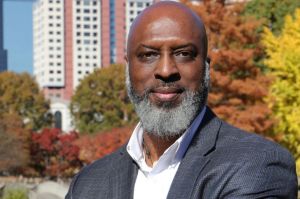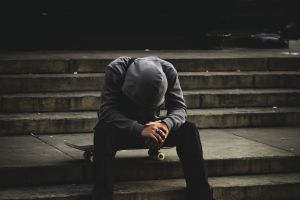Well-Known Convert from Islam Escapes Egypt with Daughter
After painful effort to change ID card, Christians flee – to similar fate.
CAIRO, Egypt – When the plane carrying Maher El-Gohary and his daughter, Dina Mo'otahssem, took off from Cairo International Airport last month, they both wept with joy. After spending two-and-a-half years in hiding for leaving Islam to become Christians, they were elated by their newfound freedom.
They also felt secure that once they arrived in Syria, they would quickly obtain visas to the United States and start a new life. That hope soon proved unfounded.
After spending more than a week and a half unable to obtain a visa to the United States or to any country in Europe, they realized they may have traded in the reality of being prisoners in their own country for being refugees in another. And as El-Gohary watches the weeks pass and his resources dwindle, he said the stress is almost unbearable.
"I feel like we've stepped out of a prison cell and into a fire," he said. "We are in very, very bad conditions … My daughter and I divide the bottles of water to live, because there is no income."
Maher Ahmad El-Mo'otahssem Bellah El-Gohary, 58, gained notoriety in Egypt after he sued the government in August 2008 to gain the right to change the religion listed on his state-issued ID card from Islam to Christianity. In Egypt, ID cards play a critical role in a person's life, being used for everything from opening a bank account and renting an apartment to receiving medical care.
The listed religious affiliation, whether a card-holder subscribes to it or not, also determines whether the person is subject to Islamic civil law. The listed religious designation determines what state-mandated religion classes minors are required to take in school. El-Gohary said he filed the suit so his daughter, then 15, could opt out of the religious classes and would not be subject to the persecution he suffered when he became a Christian in his 20s.
It is a crime punishable by imprisonment to have no ID card in Egypt.
The suit sparked outrage throughout Egypt. Both El-Gohary and his daughter were publicly branded apostates in a country where 84 percent of Muslims think those who leave Islam should be executed, according to a study released by the Pew Research Center in December. The same month the suit was filed in 2008, El-Gohary and his daughter were forced into hiding.
For two and a half years, El-Gohary shifted back and forth among several apartments in Cairo and Alexandria, usually once every month. Even in hiding, the two were harassed regularly by Egypt's dreaded State Security Intelligence service (SSI) and assaulted repeatedly by others, including someone pouring acid on Dina, El-Gohary said.
While in hiding, El-Gohary tried repeatedly to leave Egypt, but officials at the Ministry of the Interior blocked him at every attempt. On at least one occasion, they seized his passport. In December 2010, after a long legal battle, El-Gohary got a court decision ordering the Ministry of the Interior to allow him to travel, but he said it still took several weeks for the government to comply with the order; the Jan. 25-Feb. 11 revolution didn't hurt, El-Gohary said.
Out of Egypt
After the national demonstrations that led to the removal of both President Hosni Mubarak and Minister of Interior Habib Al-Adly, El-Gohary and his daughter went to Cairo International Airport on Feb. 22 to leave the county. They came prepared with their newly issued passports, the court order and myriad documents to prove they had the right to leave the country. Even so, authorities took the two aside for interrogation at the airport.
"My daughter and I went to the counter of the airport to the manager, then they took us to the SSI," El-Gohary said. "We spent an hour talking to an officer trying to tell him, 'We spent ages during Habib Al-Adly's time, and even now after the revolution, we don't have the right to leave?'"
According to El-Gohary, the guard asked him if he really wanted to leave the country.
"Yes," El-Gohary replied. "I have a court order against Al-Adly, and I have the right to leave and the freedom to travel outside the country." As if to add insult to more than two years of injury, the SSI officers told El-Gohary that Egypt was "their country" and to "come back anytime you want to."
El-Gohary credits the revolution as the reason he was allowed to leave Egypt, saying it was a miracle "from God."
They chose to go to Syria because Egyptian citizens are not required to have visas to visit there. After contact with a U.S. organization that concentrates on religious freedom, El-Gohary expected it would be easy to get a visa to the United States, where his wife lives. But he said he has been unable to obtain an entry visa there or to any country where he will feel safe. He went to a U.N. office in Syria seeking assistance; he was given an appointment to come back on April 20.
"I wasn't expecting, after all this suffering and all these years, that…" El-Gohary said, cutting himself off. "The series of persecution is not finished."
Although they don't live under the same type of threats as they did in Egypt, El-Gohary and Dina now live in an apartment where they still watch everything they say and everyone with whom they talk. They still spend much of their time trapped between the four walls of their apartment because Syria, El-Gohary said, is a country where converts to Christianity from Islam are persecuted.
"The danger is still there," El-Gohary said. "We don't get out of the house. We don't meet people. We don't tell people what we are doing or talk to them about our situation. Because we don't want someone to say, 'Why are you applying to the U.N.?' There are still a lot of enemies."
Dina, now 17, said that although leaving Egypt was "like a miracle," she is devastated by the prospect of having to spend more time with her life on hold. She said she is just as scared in Syria as she was in Egypt.
"We're really, really tired of all this suffering," she said. "I've lost two years of my life. I want to finish school."
Muslim converts to Christianity in Syria were sometimes forced to leave their place of residence due to societal pressure last year, according to the U.S. Department of State's 2010 International Religious Freedom Report. While there is no official state religion in Syria, the constitution requires that the president be Muslim and stipulates that Islamic law is a principal source of legislation.
With strict monitoring and curtailing of militant Islam, the government in Syria has long been considered a moderate regime. The government's fear of violent responses by Islamic extremists to increasing conversions to Christianity, however, was at least partially responsible for the closing of six buildings where Christians were meeting last year, according to Christian support organization Open Doors. Noting that several Christians were arrested and interrogated in 2010, the organization's World Watch List bumped Syria's ranking up to 38th place among nations in which persecution of Christians takes place, from position 41 the previous year.
Syria is 90 percent Muslim, and 6.34 percent of its 22.5 million population is Christian, according to Operation World.
Though El-Gohary and his daughter have a dark outlook on their current situation, they are still grateful.
"Without God's love, we would have been dead by now," El-Gohary said. "Getting out of Egypt itself was a victory from God."
Dina said she also is thankful, but that as she gets older she is becoming increasingly preoccupied by one wish.
"I want to get out so I can finish my studies," she said. "I want to go into a church and out of a church without being scared of being killed."





























